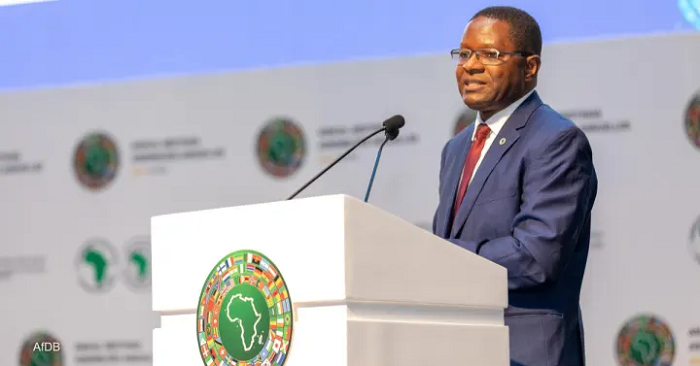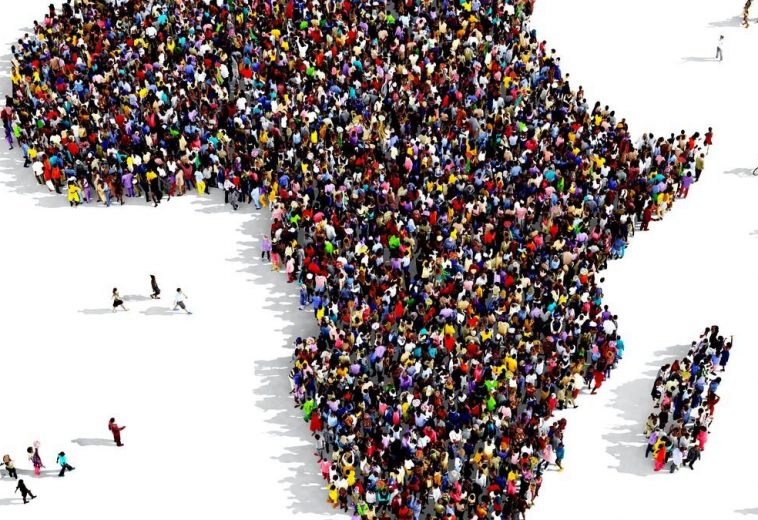The security of lives and properties is a critical component of life that is as important as life itself.
As much as there are external security issues that continents and countries battle with, there are also internal security issues peculiar to each continent that either enhance their growth or hinder development.
For Africa, there are lots of security issues and threats that various nations on the continent are struggling with internally that are known to have hindered development in their various countries and regions.
Our focus in this article will therefore be to highlight these security challenges as they affect each region on the African continent as well as offer solutions to some of the issues.
Internal security for any nation involves the act of ensuring peace within the confines of a state by upholding the laws of the state and defending its territorial integrity.
Often, governments become overwhelmed by some of the internal security threats they face, which blow them out of proportion.
West Africa
Though the West African region has a record of some of the most impressive growth on the continent, it is still bedevilled with security threats such as terrorism, religious extremism, electoral violence, civil unrest, and armed insurgency, which have led to instability.
At different points in time, countries in the region have faced one form of conflict or another. For years, countries like Liberia, Cote d’Ivoire, and Guinea Bissau were faced with conflicts, and recently, countries like Nigeria, Burkina Faso, Guinea, and Mali have been torn between different conflicts, most of which emanate from the Sahel region and have risen in recent times.
For instance, Mali’s security threats index between 2007 and 2022, which showed issues such as bombings, mutinies, attacks, or acts of terrorism, was on average 8.06 index points, with a minimum of 4.8 index points in 2007 and a maximum of 9.7 index points as of 2022.
This was 4.61 points higher than the world average of 5.09 index points as of 2022, an indicator that security in Mali was at a high point of deterioration.
Graphical illustration of index points measurement of security threats in Mali.
Source: Fund for Peace.
Most of these conflicts have been traced to factors like human rights violations and abuses, poverty, bad governance, corruption, and marginalisation.
While individual countries make efforts to curtail and put an end to such conflicts, regional bodies like the AU, ECOWAS, and other security groups have also been at the forefront of tackling these issues.
However, ending conflicts in the region can be achieved if the governments make conscious efforts towards concrete plans and strategies to tackle the underlying factors aiding the conflict.
There must also be collaborative efforts among the governments in the region and the citizens towards protecting the rights of individuals, fostering tolerance, and harnessing the strengths and purposes that bind the people together.
These can be achieved through better management of electoral processes to produce credible leaders the citizenry can identify with.
East Africa
The East African region seems to be the most affected on the continent in terms of insecurity, which has caused it to be very fragile, leaving several millions of people displaced and another huge number of millions left as refugees.
Al-Shabaab and Al-Qaida are the two most active terrorist groups in the region, and they have committed quite a few militant attacks on countries in the eastern part of Africa.
Beyond their acts of insecurity, their continuous recruitment has raised concerns about how and when their activities can be stopped.
At both the interstate and intrastate levels, the region is also faced with security threats posed by pastoral militias.
Prominent recent conflicts in the region include conflicts in Ethiopia’s Tigray region and conflicts between Somalia and Kenya.
Like other regions, the East African region also has different bodies and agencies working to ensure lasting security, like the Intergovernmental Authority on Development (IGAD) and the East African Community (EAC), but they need to do more to achieve better results.
As a regional intergovernmental organisation, the EAC needs to do more in terms of fostering peace by partnering with IGAD to work alongside other relevant stakeholders towards ensuring that countries in the region fight the menace of terrorism, which is the highest form of threat confronting the region.
Also, authorities in the region need to come up with programmes that will engage the people meaningfully and allow for economic opportunities to be evenly distributed without any form of marginalisation of any group that can lead to agitations of whatever form.
It is equally important that lessons are learned from past occurrences for governments to know that refugees’ interests should not be taken for granted so they do not become useful tools for armed conflicts.
North Africa
Since the popular uprisings of 2011 in the region tagged “Arab Springs”, the North African region has continued to witness increasing security challenges, mostly from terrorist jihadist groups, with the prominent ones being from terrorist groups affiliated with the Islamic State in Iraq and the Levant (ISIL) and the Al-Qaida in the Islamic Maghreb (AQIM), as well as threats from migration effects from people moving towards Europe.
Over time, there has been a symbiotic relationship between conflicts between North African nations.
Despite this knowledge, the various issues have, however, been treated in isolation by the governments in the northern nations. To find lasting solutions, it is important that, as neighbouring countries to the Middle East and due to their closeness to European shores, Northern African countries deploy cooperation to achieve lasting peace and security.
The governments must also be proactive in developing strategies to forestall occurrences of past conflicts while also taking into consideration the Sahel region given its importance and closeness to northern nations.
Southern Africa
The Southern Africa region is confronted with political differences and military threats that come mostly from disarmament, reintegration, the unfinished mobilisation of former military personnel, and the occurrence of landmines.
Instability has continued in the region for quite a while, with dire consequences for the lives and livelihoods of the people despite efforts to end it.
For instance, data from the IOM showed that the Democratic Republic of the Congo (DRC, is facing the most complex crisis in the world as of 2023, with huge effects from displacements and human rights violations, among others.
This continuous crisis has put the DRC in the category of a high-risk security-threatened country and got it ranked 158 out of 177 countries in the global security index for 2022, having reached the 10 point mark at some point.
Charts showing the security index points for DRC between 2007 and 2022
Recent values
Longer historical series
Source: Fund for Peace
For the DRC and other member countries of the Southern Region to enjoy stability and security, governments must seek to remain neutral and not be partisan with any group or militia.
Collaborative efforts must also be geared towards addressing the root causes of the conflicts through dialogue and de-escalation of tensions between different groups.
Beyond regional bodies like the Southern African Development Commission’s efforts, the African Union as a whole needs to also intensify its peacekeeping initiatives in tandem with other bodies to ensure that governments in the region keep their promises and work towards good governance, which will contribute to the overall stability of the region.
As much as there is violence, conflict, and instability in various parts of Africa, which have portrayed the continent in a negative light in recent times, that is not enough to say that it is all black in terms of security, as the continent has also recorded some feats and achievements over time.
It is only expected that authorities would intensify efforts geared towards achieving a society that will be safe for all, irrespective of tribe, colour, or religion.


